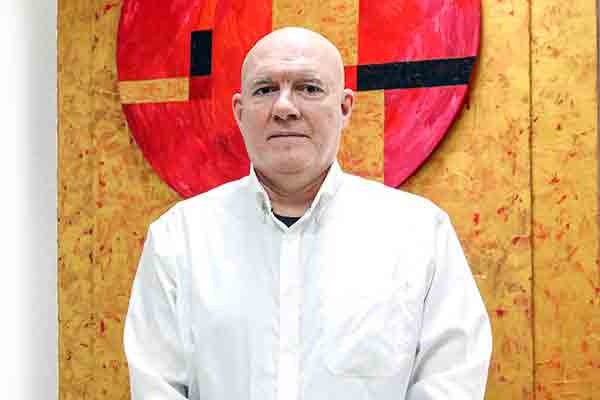Most manufacturing processes, like CNC machining and plastic injection molding, will generate some form of waste product. The impact of these processes on the environment in undeniable. But there are ways manufactures and product developers can reduce negative consequences such as air pollution and landfill.
If you’re unfamiliar with sourcing from China, you may find it challenging to locate a reliable manufacturer that demonstrates a concern for the environment and waste control. How do you find an environmentally responsible supplier in China? Here are the 6 questions you should ask a supplier if you want to reduce your impact on the environment.
1) Do They Reuse Waste and Scrap Material?
Whenever possible, waste or scrap material should be reused. This is easiest with thermoforming plastic, which can in some cases be put right back into the manufacturing cycle. First, the plastic must be kept separate so that it isn’t contaminated with other material types or color.

Once the material is separated, a regrinding machine can be used to prepare the plastic to be put back into production. A regrinder is just a plastic eating machine. It chews up the scrap inside of a drum lined with metal blades, chopping the plastic up into pellets that can be melted and re-injected. Bear in mind that this is only good for thermoforming plastics, not thermosets, as we’ve talked about before.

2) Do They Recycle Material?
If a factory has a mix of materials of different types and colors and can’t immediately reuse it, the responsible thing to do is separate metals and plastics by type: aluminum, stainless steel, brass, PVC, ABS, etc. If you want to make sure the supplier you’re using is environmentally aware it’s a good idea to ask them if they do this and that the material is clearly labeled.

At Star, we’ve contracted with the local government to work with a licensed and bonded dealer who removes the scrap and processes it in accordance with the applicable environmental protection regulations. In this way, the vast majority of waste stays out of a landfill and is returned to production in the form of new raw material.

3) Do They Dispose of Chemicals Properly?
CNC machine tools routinely use cutting fluid for a number of reasons: to cool the cutter head, wash away debris and lubricate the cutting surface. What chemical a factory uses and how they dispose of it can have a big impact on the environment.
At Star, we use a natural mineral oil mixed in solution with water. This fluid is filtered and recycled several times for maximum efficiency.

Not glamorous perhaps, but necessary. Cutting fluid will eventually break down and lose its ability to lubricate, so then it must be replaced. But what to do with it? Michigan CNC Machining Parts, Inc. works with another contractor, this time to take away waste cutting fluid and other chemical hazards, which are marked and kept in a secure area away from production before disposal – again in accordance with local and national regulations.

4) How Do They Manage Fumes and Vapors?
Michigan CNC Machining Parts, Inc. has invested in a state-of-the-art, climate and atmospherically controlled paint room for the production of high-end, custom finishes. But spraying paint in a closed area can potentially be hazardous to the environment and to worker’s health. What’s the remedy here?

First, the paint room is sealed off with an air lock like this one, that prevents dust from going in and fumes from coming out. All workers wear breathing respirators, of course, but the ambient air is also pulled into a series of High-Efficiency Particle Arresting (HEPA) filters. After going through the HEPA filters, air emerges even cleaner than it went in!

When choosing a supplier ask what happens to their fumes and vapors. Many organisations allow it to be released directly into the open air, a practice that our team at Star strongly disagrees with.
5) What Certifications Do They Have?
Another sign that you’re choosing a reputable manufacturer is whether they’ve elected to be certified by independent, third-party quality control assessors. Michigan CNC Machining Parts, Inc. has not only ISO 9001:2008 certification, but also QS14001 and BS OHSAS 18001 certifications. These demonstrate our commitment to environmental protection as well as worker health and safety.
6) Are They Clean?
Finally, a word about cleanliness. If you walk into a factory and see oil spilling from the machines, grease on the floor, litter overflowing from the bins and other equipment haphazardly strewn about the place, does it give you a feeling of confidence that they manage their environmental responsibilities with due diligence and care? We don’t think so either.
Star keeps the workplace scrupulously neat and clean. Not just because that’s the best way to do quality work (it is) but also because a clean and neat factory will instantly alert everyone if something is out of place. Did the machine suddenly start leaking hydraulic fluid? This will only be recognizable – and repaired – when such a thing is unusual, not the norm. An orderly workplace is safer, more efficient, and easier to maintain.
Looking to The Future
At Star, we value our planet. We are always looking to find better ways of manufacturing so that we can keep it beautiful. We hope that this article will inspire other manufacturers to adopt better practices for the environment and we hope that you will do your part in challenging manufactures to step up wherever possible.
If you would like to see our facilities for yourself, we invite you to come and visit us in a place called Zhongshan in Southern China (only a 90-minute ferry ride from Hong Kong). Here is a travel guide for Zhongshan to help you plan your trip. And when you’re ready to trust us with your next project, send us your CAD drawings for a free quotation. You will love our factory tours, but if you can’t make it in person, watch a video of our factory instead.
Chris Williams is the Content Editor at Michigan CNC Machining Parts, Inc.. He is passionate about writing and about developments in science, manufacturing and related technologies. He is also a certified English grammar snob.




